|
Between 15–17 May Hanoi will host TECHFEST Vietnam 2015, introduced in 2 previous Startup Commons’ posts: TECHFEST Vietnam 2015 and TECHFEST Vietnam 2015: Investors’ Profiles. In this post, I would like to present the perspective of one of the event co-organisers: HATCH! PROGRAM, an incubator based in Hanoi which provides mentorship, connections and financial support to early-stage entrepreneurs. Recently I have had an interview with its 2 representatives: Pham Quoc Dat, Cofounder and Director, and Le Viet Dat, Cofounder and Head of the Community Building Program. Firstly, they explained why TECHFEST Vietnam 2015 is an important event for the startup community and presented activities which they will be coordinating. The second part of the interview focused on other HATCH! PROGRAM projects. What kind of impact do you think TECHFEST 2015 can have on the startup ecosystem in Vietnam? How will it affect your own work? Pham Quoc Dat: TECHFEST 2015 is a festival for technologists, entrepreneurs, startup supporting organisations based in Vietnam as well as organisations and investors from the USA, EU, Israel, Australia, Singapore and other Southeast (SE) Asian nations. Not only does this event provide an opportunity for the startup ecosystem to look back and celebrate all tech achievements, but also creates a platform for open discussions and sharing experiences to address challenges and enforce future innovative technology solutions. It will contribute significantly to the startup ecosystem with valuable insights, strategic directions as well as a national and international network. Then we can witness more successful stories of Vietnamese tech startups. As one of the most active community builders, HATCH! PROGRAM is glad to be a co-organiser of TECHFEST 2015. The spirit and objectives of the event are aligned with our mission and strategic activities: community building, startup incubation and seed funding. We are looking forward to opportunities which this 3-day event can brings us: to work with the most promising startups and widen our network of local and international experts and other regional startup supporting organisations. This will help HATCH! to get some new insights into the market, select the most competitive startups for our incubation and funding, and also tighten our network with national and international partners. In what ways do you support the National Agency for Technology Entrepreneurship and Commercialization Development (NATEC), the Ministry of Science and Technology of Vietnam, in organisational matters? Are you going to be in charge of any activity during the event? Le Viet Dat: HATCH! PROGRAM is fully in charge of developing the TECHFEST brand identity and values as well as consulting and managing the communication campaign and event logistics. We also contribute to the programme with 2 activities: a workshop on Translation of Science and Technology into a Good Business with Dr David Hardman, CEO of Birmingham Science Park, and a fireside The Missing Dots. Could you tell a bit more about these 2 events? Le Viet Dat: In the workshop Translation of Science and Technology into a Good Business, Dr Hardman will share his knowledge and experience in transforming science and technology into a working business model. He will present biotech as a potential direction. During the fireside The Missing Dot, HATCH! wants to initiate an open discussion on product development. This fireside aims to raise interests and concerns from different perspectives on how to develop more competitive and innovative products in Vietnam and international markets. It will also fire up some initial practical solutions. How would you encourage participating in TECHFEST Vietnam 2015? Le Viet Dat: TECHFEST 2015 has been very attractive to many technology enthusiasts, therefore, there is no doubt that we will attract a thousand participants. What we are working on is to encourage a ‘real discussion’ and ‘real interaction’ in every event activity. We invited national and international renowned technologists, experienced entrepreneurs and industry experts to provide market insights and initiate a talk about the next trends and initial solutions. We will try to create a real startup atmosphere so they will be more willing to share their thoughts. HATCH! PROGRAM has launched 3 initiatives: (1) HATCH! COACH, product development training, (2) HATCH! NEST, co-working space, and (3) HATCH! ANGEL, an angel investor network. Each project is tailored to specific needs of Vietnamese startups. What results have you already achieved? Pham Quoc Dat: It seems that these 3 projects are separated, however, they closely support each other. Community building activities such as Coffee Talks, networking events and co-host events, HATCH! COACH, a hands-on education course, and HATCH! NEST, our co-working space, help us to build up a portfolio of startups and data for resources in Vietnam. HATCH! ANGEL will select the most promising startups to put into short term incubation and provide seed funding. Last year we successfully made one deal: after 3 months of incubation, we matched a startup working in the educational field with some angel investors. At the launch of HATCH! ANGEL last month [on 23 April – ed. note], we had one pitch in front of 25 angels. HATCH! COACH focuses on a product development training programme which has received more than 40 applications. It has addressed directly the need for short and effective training for startups, especially when they are in the product development stage. The new course will be officially launched in early June. HATCH! NEST is now under re-construction and expected to open for leasing and event organising in late May. Many programmes and activities of HATCH! such as HATCH! COACH will be organised at HATCH! NEST, where we can collect all resources and enforce strategic connections between startups and their supporters. It received 10 applications in just one day after an early-bird registration was announced. HATCH! ANGEL is more ambitious. It provides what startups need exactly: seed funding. We will select the most promising startups to facilitate investment relationships with angels within our network. Once a month we will organise a pitching event to provide market insights and updates to our angels and also opportunities for 2 startups to sell their businesses. In June there will be the 3rd edition of HATCH! COACH, product development training. Could you describe the training programme in more detail? Le Viet Dat: HATCH! COACH aims to guide young entrepreneurs through the process of startup development with hands-on coaching. This time the training will focus more on product development: the process, techniques and the product methodology behind. During 6 weeks, teams will be guided through the main stages that a product manager should be aware of: from designing reliable experiments for market validation and iterating UX / UI design to growth hacking. They will be instructed by coaches who are well-known in the community for their expertise and successful products. They will share their know-how, guide and help teams to accelerate the development of their products. At the end of the course, they will be presented in a show case, and the most promising and committed team will receive USD 500 as initial support for the next development stage of their product. What kind of startups usually enrol in the training? Le Viet Dat: Each training has a specific theme based on careful market research. The participants of HATCH! COACH 3 are startup product managers, technology developers, designers and wannabe entrepreneurs who want to refine their products. At the moment, there are 25 investors in HATCH! ANGEL. How are you going to attract more investors to your network? Pham Quoc Dat: We have built up the angel network based on our current network and activities, especially the 2nd annual HATCH! FAIR. We have worked with a few high ‘net-worth’ individuals and invited them to join our network. Additionally, they present themselves as our representatives and supporters to refer more contacts to HATCH! and invite their friends or partners to become our angels. Besides, we also approach other potential connections by actively joining networking events and organising or co-hosting events on an international scale such as HATCH! FAIR and TECHFEST or thanks to our international partners such as the World Bank, Tigers@Mekong or Seedstars World. There are 3 investment areas of HATCH! ANGEL’s interest: technology, education and agriculture. Special attention is given to innovations in technology. What results do you aim to achieve? Pham Quoc Dat: This year HATCH! ANGEL aims to attract 100 applications from early-stage startups which are seeking seed funding. Each month 2 startups will be chosen to participate in a workshop and pitching event, where they will be able to sell their businesses to a board of angel investors. We expect to close 2 deals this year. HATCH! ANGEL is in a pilot year, therefore, we surely face a number of challenges and we will make the best use of all opportunities we have and our failures to prepare for the official launch of HATCH! ANGEL FUND in 2016. What are your plans for the future? Pham Quoc Dat: In the near future, we want to continue our work in supporting startups, not only in terms of mentorship or consultancy, but also with funding. This year HATCH! launched the pilot for HATCH! ANGEL in Hanoi, and next year we aim to come back to HCMC [Ho Chi Minh City, Vietnam – ed. note] with our mentoring activities and especially the investing initiative [HATCH! ANGEL FUND – ed. note]. Thank you for the interview. The author of this text is Birute Birgelyte, PR and Communications Trainee at Startup Commons. You are free to re-edit and repost this in your own blog or other use under Creative Commons Attribution 3.0 License terms by giving credit with a link to www.startupcommons.org and the original post.
This is the second part of the interview with Elitsa Panayotova, Executive Director of Sofia Tech Park, Bulgaria. She presents other Park activities and facilities. Later she describes her work at CEEDS’15, one of the biggest digital and tech events in Central and Eastern Europe which took place between 21–22 April in Sofia. She also shares her impression of the event. The first part of the interview can be accessed here. Sofia Tech Park will also have the Innovation Forum, which will host different meetings and events of the tech startup community: scientific conferences, industry panels, meetings with investors, etc. Is it already known who will be administering the Forum? Have any events been already planned? Again: no. We will also have an operator selected for the R&D Forum. Of course, Tech Park will be assisting with ideas and contacts but we will have an operator that will be responsible [for everything – ed. note]. It will work under an R&D consortium that will manage the laboratories. We are planning the first events for November but we haven’t set the dates. Probably in a month or two we’ll know the exact date of the opening and then the event dates. For two years, we have been organising events as Tech Park in different venues, mainly in Sofia: event centres, hotels and universities. This is part of the concept with which we applied for funding. The goal is to prepare the park ecosystem while developing its physical environment. Last year we had 3 or 4 events, this year we’ll have other 10. Basically once or twice a month we have events on different topics. For example, one event focused on intellectual property rights in the 3 areas that are focal to Tech Park [ICT, life sciences and energy – ed. note]. We had participants from all over Europe, the US and Israel. Then we have an event this year that will focus on matchmaking companies from different areas. One of the topics will be: How could you find horizontal integration between software development and agriculture sectors? Another event worth attention will be about innovations in the form of design: how design brings innovations to different businesses. Also, we will focus on education, not on the institutional side of it but on global trends and how they could be introduced to our society. These are events that we are organising in parallel and once the Forum opens we will be able to host them there. This year we'll probably have one or two events outside Sofia and in the future we will also try to expand our activities to other cities. How are you trying to attract local and international investors? We haven’t started attracting investors actively. You need to know the opening date and Park mechanisms before you can address all players. Our focus is not only on national companies but also regional and international. We see some interest. As we speak, companies are sending us letters of intent. We have started communicating and reviewing some of them. We have our first investor. It’s a local company called Walltopia. It is a world-leading producer of artificial climbing walls. It is constructing tailor-made buildings offices and the R&D Centre. That building will also house a lot of sport activities. We also have 2 or 3 multinationals with whom we are discussing setting up their operations in the Park. They are not newcomers to the market. We will start attracting investors actively at the end of this year or the beginning of next year. What are the eligibility criteria for investors interested in the research and development (R&D) and office facilities? Their businesses should be in the 3 focus areas of Tech Park [ICT, life sciences and energy – ed. note]. We aren’t looking for companies that just sell technology or provide services. So one of the basic criteria would be R&D. Companies should also be innovative and contribute to the whole environment. We need to give a push to the ecosystem with innovative technologies. What cooperation opportunities will be offered for international researchers? As we speak, we are talking to several international research centres about projects that we’ll be working on together when the Park opens the doors. For example, our laboratories will participate in different research projects. Sofia Tech Park is a member of the International Association of Science Parks and Areas of Innovations (IASP). What kind of support do you receive from the organisation? The support is mainly information: contacts and information on how things are done. Definitely it will grow as we operate. There will be more exchanges in the network: requests for different services, products or projects. This will be very useful for us. Between 21–22 April Sofia Tech Park participated as an exhibitor at CEEDS’15, organised by Webit. Could you describe your work there? The point of our participation was to present the project on a larger scale: to get people better informed of what we are doing and what the Park will be about. Some of them could become our clients afterwards. Also, we established new contacts and got some useful information. Some of the event lectures were focal to many aspects of our work. What is your impression of the event? It was very well visited. There were a lot of interesting companies and lectures. There was a very informative lecture on global [digital and technology – ed. note] trends. I think it was a very useful event, an event on a global scale. I am very positively impressed. It is good to have such events in the region. Would you recommend participating in the event next year? We will definitely participate and are already planning to participate in a different way. Right now we are very cautious because we are not yet there: we are at the development stage. We hope that next year we will be better visible. I think that Webit events have proved to be among the most important and interesting events in the area. They attract people and leading technology companies from all over the world. This event was quite prestigious. Even if you look at the list of lecturers and panelists: it’s an amazing group. It was a very informative and networking event. People got to know each other. For example, people whom we met came to Bulgaria for the first time and weren’t aware of certain opportunities that are in stock for them here. So this was an event where you could come up and come out with specific results and contacts. What are your future plans for cooperation with Webit’s team? We have discussed cooperation. If next year Webit is again in Sofia, we’ll be glad to host it at the Innovation Forum. We’ve agreed that after the event in Istanbul in the autumn [the 7th Global Webit Congress, 7–8 October 2015 – ed. note], we’ll discuss in more specific terms how it will turn out next year. Thank you for the interview. The author of this text is Birute Birgelyte, PR and Communications Trainee at Startup Commons. You are free to re-edit and repost this in your own blog or other use under Creative Commons Attribution 3.0 License terms by giving credit with a link to www.startupcommons.org and the original post. Photo credit: Sofia Tech Park.
According to Elitsa Panayotova, Bulgaria – especially Sofia – has been leading in developing the startup ecosystem in South Eastern Europe for the last 2-3 years. Sofia Tech Park is an ambitious project which proves that: it is the first science and technology park in Bulgaria and the region. It is was launched in June 2012 with the financial support of the Bulgarian Government and the European Regional Development Fund. It is coordinated by Sofia Tech Park JSC, a state-owned company which set a goal to “advance research, innovation and technology growth in Bulgaria” through different projects in the areas of ICT, life sciences and energy. All the infrastructure should be ready by the end of the year. The good news for entrepreneurs is that the Park will include an Incubator and Innovation Forum, which will host different high-profile tech events and meetings with investors. They could also benefit from modern office and sport facilities as well as cooperation with researchers and public servants who will be working just next door. Another good point is that Sofia Tech Park team aims to develop a network of partnerships with private and public institutions in order to create an innovation hub where they could work together on different projects or provide assistance. For example, it will be possible to get some expert consultations on commercialising tech products and services. The team has already established cooperation with Sofia University, the Technical University Sofia, Medical University and Bulgarian Academy of Science. The last piece of good news about the Park is its excellent location: it is in 6-8 min proximity to the city centre, airport, Bulgarian Academy of Science and Technical University Sofia. In order to find out more about the project, I have arranged an interview with Elitsa Panayotova, Executive Director of Sofia Tech Park. She joined the team in June 2012 when Bulgaria’s Ministry of Economy, Energy and Tourism registered Sofia Tech Park JSC. In addition, I have also asked Ms Panayotova to share some ideas about CEEDS’15, which took place between 21–22 April in Sofia. It is one of the biggest digital and tech events in Central and Eastern Europe. Sofia Tech Park participated there as an exhibitor. At what stage of development is Sofia Tech Park at the moment? What is the next step? We are in the last phase of finishing the construction and then we will have to set up all management mechanisms. The park has to be completed as a physical environment and be functional at the end of this year or the beginning of next year. Are there any big challenges with the implementation of the project? There are many different kinds of challenges. One of the purposes of Sofia tech Park is to overcome certain social and economic problems in Bulgaria. We need to bridge the gap between the academic environment and businesses because communication and technology transfer are not at their best. Finding a communication channel between them is one of the challenges. It is important for the project development because these players are key in setting the priorities. There are also a lot of challenges that are linked to different EU procedures and approvals but they are not that important. Another challenge is related to setting up the mechanisms under which the park will operate. Each of the park units has a different philosophy in itself and management scheme. At the same time, they need to be able to work together. For example, for the laboratory complex we’ll have to set up a consortium that will include Sofia Tech Park JSC as the owner of the infrastructure. Keeping the stakeholders’ interest and making them work together are also challenging. There is the startup community, businesses of different sizes and academia. We have on board 3 universities together with the Bulgarian Academy of Sciences as project partners. One of the goals of Sofia Tech Park which it would like to reach by 2016 is setting up the Incubator for start-up and spin-off companies. Could you describe in more detail what kind of project it will be? There are 3 focal areas of Sofia Tech Park: (1) information and communication technologies, (2) life sciences and (3) energy. The target of the Incubator is to concentrate all startup activities under one roof, enhance and scale up new initiatives and also open up to other areas. Right now the accelerators and incubators funds focus on IT: applications and softwares. We want to expand to bio-technologies: startups could work together with the universities on different projects in the laboratories. We also want to create a hub for entrepreneurs and startups where they will be able to find assistance and cooperate. Who will be in charge of the Incubator? We will choose an operator. We are setting up some criteria and then will be looking for an operator in the second half of this year. Has the Incubator project received a lot of interest and support of local and international entrepreneurs, startup support organisations (incubators, accelerators, etc.) and investors? We have received some interest from different investment funds that would like to partner with us and have access to companies that will be in the Incubator and also from companies that would like to use the Incubator facilities. The interest will be rising during the opening stage and after the setup and announcement of the selection criteria. All of this will be happening in the second half of this year towards the end of the year. Of course, like with all incubators around the world, it won’t be overnight success. It will take a while until companies will start working and all the units will be functional. The second part of the interview can be accessed here. The author of this text is Birute Birgelyte, PR and Communications Trainee at Startup Commons. You are free to re-edit and repost this in your own blog or other use under Creative Commons Attribution 3.0 License terms by giving credit with a link to www.startupcommons.org and the original post. Photo credit: Sofia Tech Park.
Singapore has been ranked as one of the best places for startups in Asia and around the world. It is well-positioned geographically, offers great infrastructure and logistics, as well as diverse, well-educated talent pool. Singapore is strategically located within hours from fast growing economies such as China and India and consistently attracts the best and brightest minds from different parts of the world. Venture funding, government support and developed startup ecosystem, together with features mentioned above makes Singapore an attractive place for entrepreneurs. more than 50. Let’s have a closer look at some incubators and accelerators in Singapore.
1. Golden Gate Ventures It is an early stage incubator helping internet startups build and launch successful companies across Southeast Asia. Golden Gates Venture’s founding partners share a rich background building successful Silicon Valley startups and managing investments in Silicon Valley and Asia. What is interesting: For startups at their Ideation and Concepting stages, Golden Gate Venture offers 100 Day Bootcamp Program, which is run once or twice per year. Since March 2012, Golden Gate Ventures has been accredited as a Technology Incubation Scheme (TIS) incubator by Singapore’s National Research Foundation. Results: Last year Golden Gate Ventures invested $10 million into startups in their first year. The portfolio includes RedMart.com (online grocery), Coda Payments (mobile payments), and Nitrous.io (web dev tools in the cloud). 2. The Joyful Frog Digital Incubator The Joyful Frog Digital Incubator is recognized as the most successful in Southeast Asia. It is also the oldest among the pack, which should highlight why the company has the most comprehensive, systematic and consistent programs for a wide range of startup companies. The Joyful Frog Digital Incubator piloted its startup accelerator programme in 2012. Over two years JFDI startups raised over $ 7.2 million in seed funding. What is interesting: consistently achieving 60%+ success taking startups to investment in 100 days. Typical startups raise around $ 550 000. In exchange for a minority stake every team, who has been selected for the program is offered a package including cash investment, mentoring, working space. Results: 38 startups have graduated, out of those 34 are still active. 3. Jungle Ventures Jungle makes seed to early Series A investments across Asia Pacific and also operates an early stage accelerator in Singapore. Founded in 2011 with focus is on early stage investments into Singapore, India, South East Asia and other regional hotbeds of innovation. What is interesting: Startups through the seed fund accelerator can look to get: S$50-500K in startup funding, co-investment by 500 Startups, a leading SV based fund, and more. Results: Current portfolio companies include micro-lending platform Milaap, mobile commerce app ShopSpot, and vacations rental site Travelmob which was acquired by Homeaway last year. So far 27 investments has been made, 24 startups still active and 3 successful exits.  Start-up ecosystems around the world are scaling new heights. Startups raising millions of dollars and numbers are growing. Here are 9 things to consider before raising funds for a start-up: 1. Never have more than 3 founders Too many cooks spoil the broth. Having 2-3 founders is an ideal choice. In case you need more experts, you can always hire them. In rare cases more than 3 founders stick together; if the number is more, ultimately, it boils down to 2 or 3. Having one founder is also a bad option. Having different perspectives and divided risks is always a favourable position to be in. 2. Analyse the market; the idea may be good, but the market may not be ready It is primarily important to interpret the existing market scenario in terms of your idea. Broadcasting your idea at the right time is where most of the startups fail. Therefore, first analyse the market and then take a call. If needed keep patience and wait for the market to develop according to your perspective. 3. Pick the right mentors Having the right mentors to guide you and help you manage risk is a blessing in disguise. Even though there are no hard-and-fast rules of choosing a mentor, make sure that your frequency and belief matches. A mentor should believe in your idea and ambition, as a result, making your journey easy and a learning experience. 4. Maintain your accounts A list of expenses of the previous and the upcoming months should always be maintained. This helps you keep track of where the money is going and how much money will be needed. As a result, while going to an investor, you can always show them the accounts and logistically present the amount of funds required. 5. Ensure financial stability in your personal life Giving up an existing job to start a venture is quite a challenging task. Knowing well that the risk may or may not bear fruit, it is of utmost importance to ensure that all the debts are cleared. Also, make sure that the medical insurance, family savings and credit cards are in place. Alongside, keep a minimum runway of 9-12 months. Once all the basic things are taken care of, it will become easier for the risk taker to concentrate on his venture. 6. Family money Keeping personal reputation at stake is riskier. Considering that most startups fail, ideally, family money should not be more that 5-10% of the total investment. 7. Consider funds as a bonus Planning a startup on the basis of bootstrapping is considered to be an ideal one. This helps you concentrate on your business completely rather than hunting for an investor. Also, this will help you control the company completely without any pressure from outside investors. 8. Go to 3-4 investors see what they are asking for Meeting an investor can be a learning experience. Listen to all the questions he asks for after you give your presentation and make a note. Remember, those are the areas the investor is not comfortable with. The more you meet investors, the more you will be able to understand the loop holes in your venture. 9. When a startup does not work, it is good to accept it The bitter truth is that approximately 80-90% of start-ups fail. It is good to make your call and move on if things don’t fall into place. Of course, this should be the last resort but as a risk taker, remember that at times you need to let things go. ___________________________________________________________________________________________ This is an edited version of a post originally posted at yourstory.com, by Richa Maheshwari (reporter from Yourstory.com). You are free to re-edit and repost this in your own blog or other use under Creative Commons Attribution 3.0 License terms, by giving credit with a link to www.startupcommons.org and the original post. It is very typical to measure mature of startups ecosystems in terms of new startups, growing startups, investors, investments, exits, etc. and it makes sense as cities use these statistics in the best possible way to communicate their economic growth at high level and to attract other relevant people, investors, big companies, more entrepreneurs and other stakeholders. These indicators are however the result of many smaller activities present in a startup ecosystem that contribute to these higher level results - as any startup ecosystem is the sum of multiple variables of an unbalanced equation inherent to the interactions of the startup ecosystem itself. So, as you can figure out, you need much information to talk about matureness of startups ecosystems. But most of all, you need a good understanding and analysis of your startup ecosystem at different levels and mapping it usually is a good starting point to set up new strategies and achieve a better economic development. But the thing is that properly mapping a startup ecosystem is more than just to create a good map to show who is who in your city or region. It is crucial to work at different levels and in more detail:
We truly believe everyone should work on this model, as it makes the investments to growth and innovation truly visible and measurable - as only the things that can be measured can be improved. And the faster the feedback loop, the faster things can be improved. Actually we are working with this model with few key cities like Helsinki at ecosystem level and even more broadly with independent organizations and we are clearly seeing that it is possible to build a vibrant startup ecosystem in a city in three to five years, what is half or less, compared to known average. Future entrepreneurs and current startups deserve this new scenario that we at Startup Commons are creating and we encourage others to contribute and develop innovation, better, faster and with less resources. Are you a consultant or an entrepreneur? - Learn more about Growth Academy Online Training & Certification Programs Download our startup booklet and watch our videos to learn more about our framework to help startups to grow without "reinventing the wheel" and without wasting lot of time trying to connect the dots. The framework is based on the startup development phases and aims to remove the highest universal risks on the startup journey. This is an originally posted by Óscar Ramírez, CEO Startup Commons. You are free to re-edit and repost this in your own blog or other use under Creative Commons Attribution 3.0 License terms, by giving credit with a link to www.startupcommons.org and the original post
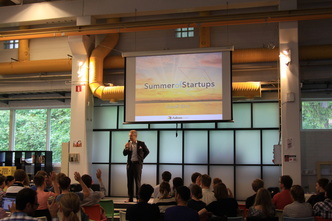 Summer of Startups is a 9-week full-time program which is targeted for ambitious people to help them get started with their own businesses. Every team get a grant of 5000€ so you team members will be fully focus on the program. Team also get a place to work, coaching and the support of Aalto Entrepreneurship Society's community. Participants get coaching from experienced coaches on a variety of topics. Summer of startups is place to learn, work hard and have fun. This time we talked to Panu Paljakka, Vice President at Aalto Entrepreneurship Society and one of organisers of Summer of Startups. What is Summer of Startups and how has it started? It is 5th time we organise Summer of Startups.So this programme has been started in 2010. Before that there was programme called BootCamp (back in 2009), later on has been separate into Summer of Startup and Startup Sauna. Summer of Startups is a programme for early stage teams, so the criteria to be part of this programme are as simple as, you have an idea and a team. The basic idea behind Summer of Startups is that young people (student and recent graduates) get opportunity to discover what is entrepreneurship, learn more about startups, see if their idea flies (if not, maybe their second or third idea going to work out). So usually we are working with teams at their ideation and concepting stages (learn more here). However there have been few teams with existing prototypes, but it is not our criteria. What is the main goal of Summer of Startups? The goal of the programme is that teams get their prototypes (MVPs) ready by the end of the programme. Our aim is also to educate people and give them opportunity to try what entrepreneurship is. So even if at the end of the programme no business has been establish those people might start company later on (even after 15 years). This is a long term impact of the programme. Who does organise Summer of Startups? Summer of Startups is organised by Aalto Entrepreneurship Society. It is all student-run organisation based in Aalto University (Finland), how ever we have reached a certain level of professionalism. We have coaches who are continuously involved in Summer of Startups and Startup Sauna. What is the main method you use to support participants of Summer of Startups? The most valuable method we use is coaching. There is a bunch of coaches (around 60 this year), who present some ideas on a certain topic (through lecture) or talk about their own story. Some of our coaches deliver workshops or have one-on-one meetings. Moreover, participants get space to work (it is open 24/7) and support of our community (Aalto Entrepreneurship Society, SLUSH, Startup Sauna). In this way it is easy to get in touch with right people. You are based in Espoo and are part of Mentropolitan area (Cities of Vantaa,Helsinki,Espoo). Are there any industry clusters in the startup scene in this area? Population is spread around the country, so there are some industry clusters in different cities (f.e. Turku has good and big gaming scene). Helsinki also has many gaming startups, but there is no focus. I do not know if Helsinki should be focused on specific industries. 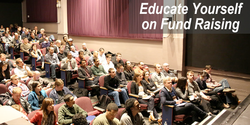 If you’re an early-stage startup that’s looking for a little help to get your business off of the ground, look no further than the recently established Founders Space accelerator and incubator. Founders Space, which was just opened a week ago, has already made it a point to provide some of the best perks and opportunities for its participants, including seminars, networking events, pitch competitions, and access to amazing set of experienced advisors, VCs, and angel investors. In San Francisco, startup accelerators are fairly easy to come by – just Google it. However, few offer their participants the comprehensive package that Founders Space has put together. Thanks to founders Steve Hoffman and Murray Newlands, Founders Space has managed to assemble an impressive experience for early-stage companies that focuses on the development of their brand, their product, and achieving their business objectives.
The way it works is really quite simple, too. Startups can apply to join Founders Space, and once they’re accepted, they will go through an intensive 4-week “Boot Camp” where they will attend sessions taught by experienced industry professionals, along with networking events where they will be introduced to relevant VCs and angel investors. “We are looking for companies that we truly believe in to join Founders Space because we have a dedicated and experience group of advisors and investors who are ready to take on the next big thing,” Steve Hoffman said. “Our goal is to teach these early-stage companies everything they need to know and introduce them to the right people to help them get things going and become the next major enterprise.” For early-stage startups, the Founders Space location couldn’t be in a better location, either. The co-working space is situated in the heart of SF’s tech industry at SOMA Central, the same building where Instagram, Twilio, and a handful of other successful companies originally got their start. “We’ve got a great co-working space in SOMA that encourages and inspires collaboration, but also enables our startups to have the meetings and business events that they need to,” said Murray Newlands. “Once we start our accelerator program, we plan on having regular networking events and seminars to give our startups the opportunities to learn and connect with other people in the industry.” If you’re interested in learning more about Founders Space or applying for their program, be sure to visit their website for more information. ___________________________________________________________________________________________ This is an edited version of an post originally posted at yourstory.com, by Chandan Raj, CTO at YourStory. Apart from tech -learning and sharing about founders, innovators and changemakers psyche and natural system evolution. You are free to re-edit and repost this in your own blog or other use under Creative Commons Attribution 3.0 License terms, by giving credit with a link to www.startupcommons.org and the original post. 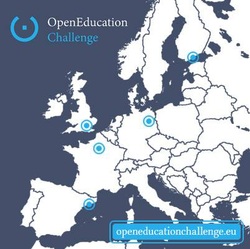 Photo credit: Open Education Challenge Photo credit: Open Education Challenge There’s no doubt about how important education is for economic growth and so do startups. What if we combine both of them? This is an option that deserves to be supported, don’t you think? Innovators in the education world now have a new opportunity to make a difference in the way we teach and learn. Open Education Challenge is the new European Incubator for Innovation in Education that provides an opportunity for anyone with a great idea to develop it into a business, with access to funding and mentorship along the way. The Challenge invites innovators to submit their proposal by 17 March 2014. Proposals can come from registered companies or aspiring entrepreneurs at the ideation stage. Twenty finalists will get a chance to go to Barcelona to pitch their idea, and the 10 winners will participate in the 12-week incubator. The intensive coaching sessions will take place in five successive cities; Barcelona, Paris, London, Berlin, and Helsinki. Each team will be mentored by an expert from the field of education, entrepreneurship, or technology. The winners will have access to up to €20.000 in seed capital, and at the end of the incubator they will present their projects to the Open Education Investment Club with the possibility to secure additional financing. Hurry up! Check some tips for writing your application, join this exciting project and make a difference in education. |
Supporting startup ecosystem development, from entrepreneurship education, to consulting to digital infrastructure for connecting, measuring and international benchmarking.
Subscribe for updates
Startup ecosystem development updates with news, tips and case studies from cities around the world. Join Us?Are you interested to join our global venture to help develop startup ecosystems around the world?
Learn more... Archives
December 2023
Categories
All
|
- Startup Commons
- Business Creators
-
Support Providers
- About Support Providers
- Learn About Startup Ecosystem
- Startup Development Phases
- Providing Support Functions
- Innovation Entrepreneurship Education
- Innovation Entrepreneurship Curriculum
- Growth Academy eLearning Platform
- Certified Trainers
- Become Growth Academy Provider In Your Ecosystem
- Growth Academy Training On-Site By Startup Commons
-
Ecosystem Development
- About Ecosystem Developers
- What Is Startup Ecosystem
- Ecosystem Development
- Ecosystem Development Academy eLearning Platform
- Subscribe to Support Membership
- Ecosystem Operators
- Development Funding
- For Development Financiers
- Startup Ecosystem Maturity
- Case Studies
- Submit Marketplace App Challenge
- Become Ecosystem Operator
- Digital Transformation
- Contact Us
- Startup Commons
- Business Creators
-
Support Providers
- About Support Providers
- Learn About Startup Ecosystem
- Startup Development Phases
- Providing Support Functions
- Innovation Entrepreneurship Education
- Innovation Entrepreneurship Curriculum
- Growth Academy eLearning Platform
- Certified Trainers
- Become Growth Academy Provider In Your Ecosystem
- Growth Academy Training On-Site By Startup Commons
-
Ecosystem Development
- About Ecosystem Developers
- What Is Startup Ecosystem
- Ecosystem Development
- Ecosystem Development Academy eLearning Platform
- Subscribe to Support Membership
- Ecosystem Operators
- Development Funding
- For Development Financiers
- Startup Ecosystem Maturity
- Case Studies
- Submit Marketplace App Challenge
- Become Ecosystem Operator
- Digital Transformation
- Contact Us

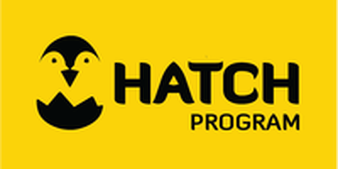
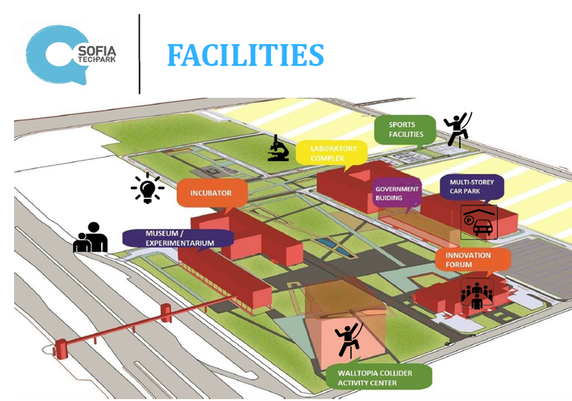
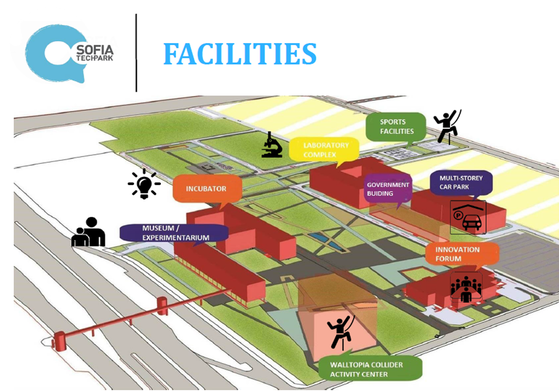


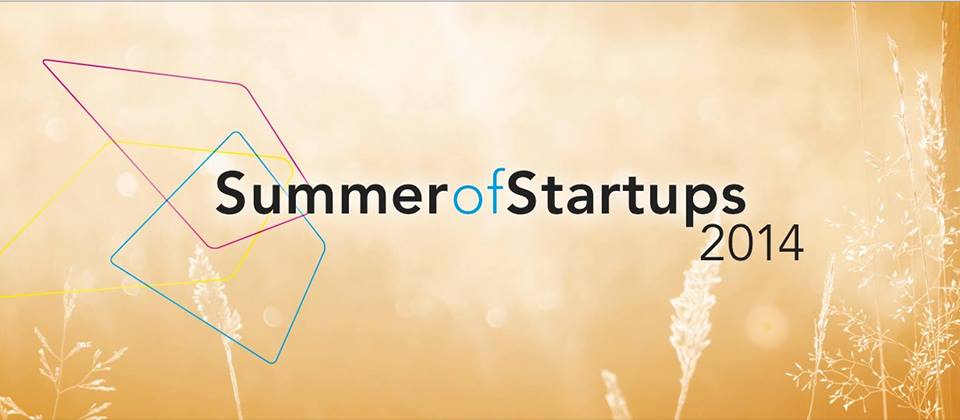

 RSS Feed
RSS Feed

